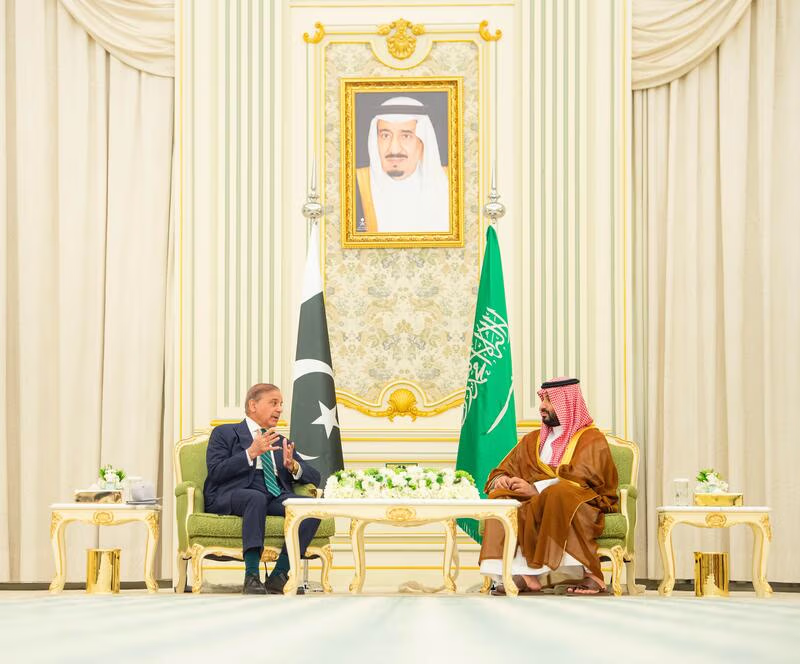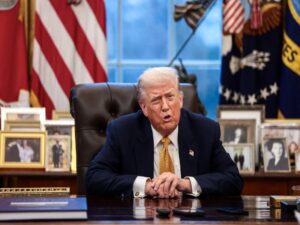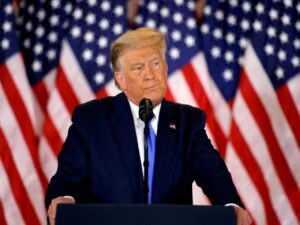Pakistan has stepped into a prominent security role in the Gulf region following the signing of a strategic defense agreement with Saudi Arabia, which analysts suggest may encompass Pakistan’s nuclear deterrence. The deal marks a significant evolution in Islamabad-Riyadh military cooperation.
On Wednesday in Riyadh, Pakistani Prime Minister Shehbaz Sharif and Saudi Crown Prince Mohammed bin Salman formalized the “Strategic Mutual Defense Agreement.” The pact stipulates that any aggression against either country will be considered an aggression against both.
The agreement goes beyond past arrangements, including collaboration in defense industries, potential technology transfers, co-production of military equipment, as well as capacity building and joint training programs.
The partnership between Pakistan and Saudi Arabia dates back to 1967, when a security pact brought Pakistani officers to train Saudi forces. Pakistan also deployed a full division to Saudi Arabia in 1982 during the Iran-Iraq War, even without a formal military pact. Joint exercises and cadet training have since remained part of the bilateral relationship.
Previous agreements were mostly limited to training protocols or specific troop deployments. The new pact institutionalizes the relationship, creating formal defense guarantees between the two nations.
Analysts note that the timing of the agreement is influenced by recent geopolitical shifts. With the United States perceived as hesitant to provide immediate security assurances to Gulf states following the Israeli attack on Qatar, Saudi Arabia sought an alternative security partner.
Deeply touched by the heart warming welcome, accorded to me by my dear brother HRH Prince Mohammed bin Salman, Crown Prince and Prime Minister of Saudi Arabia, on my official visit to Riyadh.
— Shehbaz Sharif (@CMShehbaz) September 18, 2025
From the unprecedented escort provided to my aircraft by the Royal Saudi airforce jets… pic.twitter.com/RZvkOSQbF1
The agreement also signals a shift in Pakistan’s regional security posture. Traditionally focused on its own defense, Pakistan is increasingly viewed as a “net security provider” in the Gulf, contributing to regional stability. Observers point to Pakistan’s nuclear capability as a key factor, with speculation that the pact may offer Riyadh indirect access to Islamabad’s nuclear deterrence. While no explicit nuclear clause exists, the language of the declaration implies such a strategic dimension.
The agreement aims to promote regional peace and security rather than pursue aggressive intentions. Nevertheless, it is expected to reshape the balance of power in the region, potentially affecting Saudi-India relations and offering Riyadh an alternative to reliance on U.S. security guarantees.
The pact also opens opportunities for Pakistan to access advanced Saudi weaponry, including the THAAD missile defense system, Patriot missiles, and Advanced Precision Kill Weapon Systems (APKWS). These assets will strengthen Pakistan’s defense capabilities and enhance collective security with Saudi Arabia.
Regional dynamics, particularly the evolving Saudi-Iran relationship, may influence the pact’s implementation. While closer ties between the two Gulf powers have reduced past obstacles to Pakistan-Saudi collaboration, Tehran is unlikely to view the development favorably, though current Iranian focus on Israel may allow Islamabad and Riyadh to deepen defense cooperation without immediate friction.
The strategic defense agreement marks a new chapter in Pakistan-Saudi relations, positioning Islamabad as a crucial security partner in the Gulf and reshaping the region’s military landscape.






